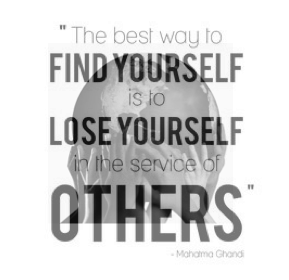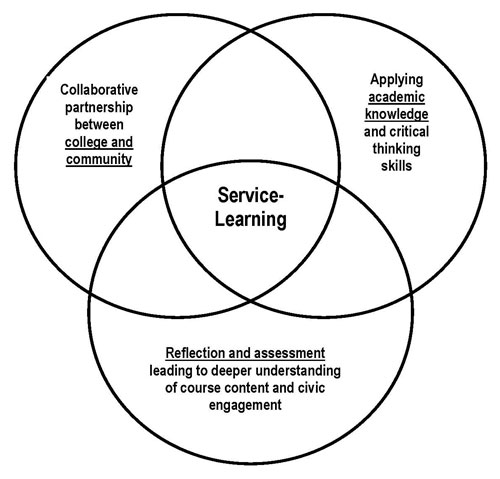Growing up in a city that is based upon “townie pride”, I have
been very familiar with service learning.
From elementary school all the way to high school, my education has
always revolved around giving back to the community. Service learning is effective in helping those
that are in need hopefully, preventing a community’s misfortunes from
reoccurring, and also providing "rich
educational experiences for students" (2). However, it seems that
service learning has become more of a requirement “to promote giving rather
than to provide the kind of understanding needed for the development of caring
relationships” (7). “In The Service Of What? The Politics of Service Learning”
discusses how service to a community is a useful learning tool if done
effectively.
The article discusses two cases of service learning
projects. In one case, a 12thgrade
teacher tells his students to pick their own volunteering project that will
help them learn about their community and help others. These students picked
projects that helped them to interact with people on either a direct or
indirect level. Although a student was
helpful in creating kits for the homeless they were not able to analyze the
situation. Mr. Johnson’s class was promoting “civic duty”. Civic duty is an obligation that a citizen
owes to help their community. The
student was helping the homeless for the time being; however, they did not put
into consideration the reason behind their poverty. By analyzing the situation, the student could
further their service learning project to help prevent their community’s poverty.
Kahne
and Westheimer stress that service learning is not just a civic duty. In order
to create an effective experience for the student participating in the act,
they must really get in touch with their projects. Mr. Johnson’s class was
doing their job to help out but did not look at their acts of kindness on a
deeper level. They “provided token amounts of needed aid yet never identified
or responded to structural problems” (9). You need to do more than just give back. I have always enjoyed taking part in volunteer opportunities. I remember when I was little I would leave Santa a letter on Christmas Eve to leave me money to donate to the poor. As I got older, I would always participate in volunteer works from my church. Every week I donate a canned good to our weekly collection and always help to collect the parish's donations from all of the masses. It has always provided me with a rewarding feeling to give to the poor. I always thought that donating and collecting the donations was a good enough deed. I was only providing a temporary fix-the donations provide them with what they need for only a certain amount of time. Just like in Jonathan Kozol's Amazing Grace, the volunteers would come every week to "volunteers arrive here twice a week to give
out condoms and clean needles" (Kozol 12). The volunteers were making to sure to help prevent STD's and other diseases but they were not putting a stop to prostitution or drug addiction.
After reading further into Kahne and Westheimer's work, I realized that it becomes hard for students to look at the bigger picture of their service learning projects because they have not experienced it. I have never truly been able to understand how it feels to loose their home and survive off of donations because I was never put in that situation. "In the Service of What?" explains that you have to "diminish the sense of 'otherness' that often separates
students-particularly privileged students-from those in need."(8). If you are able to eliminate the barrier that social status may provide then you can have a different insight on their life. By allowing yourself to be on the same level as those you are helping, you are able to see how to effectively participate and help your cause.



I really really really like this ven diagram
ReplyDeleteI agree with Dennis, I also really like the ven diagram that you put in this blog. It makes understanding service learning when it comes to college and the community that we live in along with being able to lead others to a bright future. Great job of explaining the article along with service learning!
ReplyDeleteGreat job summing up the article- great connection to Kozol also!
ReplyDelete